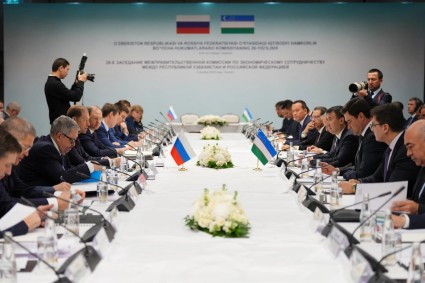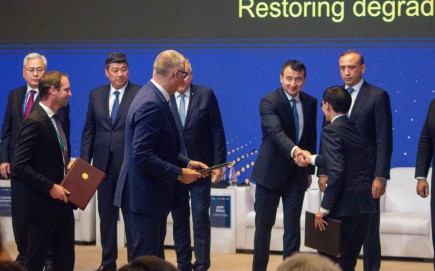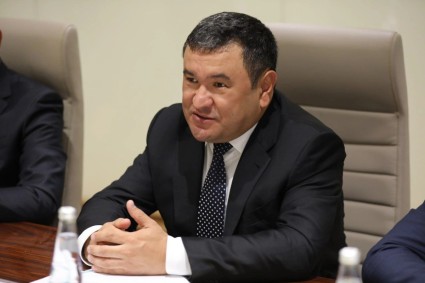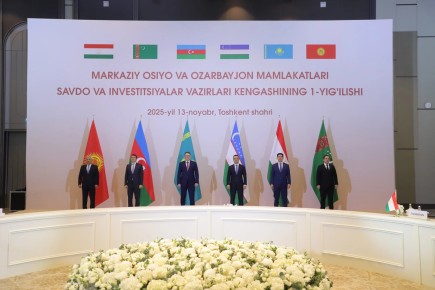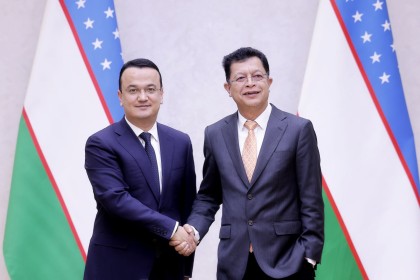The Ministry of Public Education of Uzbekistan and the World Bank jointly organized an International Forum involving dozens of local and international experts in education. The event participants considered the experience of European and Asian states in boosting their economies through investments in education, and critically analyzed reforms in Uzbekistan to develop modern skills and knowledge of the youth that will improve the country’s competitiveness.
The event was part of the World Bank’s ongoing analytical work designed to assess the impact of the education sector on the development of human capital and economic growth in Uzbekistan and assist the Government with elaborating further policy measures in this area.
Representatives of the key government agencies responsible for education, social and economic development, members of academia, and international experts joined offline and online formats of the Forum. They reflected on how reforming the education system towards a world-class system can have a huge impact on the economy and how such efforts can further the growth and development agenda.
Local and international practitioners and policymakers in the field talked about global trends in reforming education with a shift from knowledge- and content-based learning to the development of skills and competencies to address challenges of the increasingly competitive world.
The event agenda included presentations by former Ministers of Education of South Korea, Poland, and the Netherlands who played key roles in implementing educational reforms in these states. They shared their experience of building world-class education systems that provide a successful path to economic transformation through raising the human capital and skills levels of their population.
“International experience shows that countries that successfully transitioned from low to high income economies invested strongly in education and determinedly raised the human capital and skills levels of their population. Enhancing students’ educational achievement has the potential to produce economic growth rates estimated at 1 to 2 percentage points. Accelerating the design and implementation of the Government’s strategic interventions on education can set the bases for the full transition of Uzbekistan to a globally competitive economy”, said Marco Mantovanelli, World Bank Country Manager for Uzbekistan.
The Forum participants noted that human capital constraints are limiting Uzbekistan from greater potential foreign investments and growth. Firms in Uzbekistan cannot access the skills they need, with the availability of skilled labor cited as one of the most binding firm constraints. This is compounded by mismatches between skills being produced by the education system and skills needed and valued by employers and of high relevance to incoming businesses into the economy.
The Forum participants also discussed the impact of the COVID-19 pandemic which is resulting in substantial learning losses and may push more students across the globe below minimum proficiency. Its impact on education will have a decades-long impact on the economy unless authorities act to recover learning losses and protect the human capital of affected cohorts. Learning losses and reduced years of schooling for student cohorts affected by COVID-19 will reduce their expected earnings by an estimated 3.5 percent, assuming a year of schooling increases earnings by 8 percent on average.
For Uzbekistan, this may amount to an overall economic loss of up to US$425 million (2011 PPP) every year due to lost individual earnings. Like many other countries, Uzbekistan needs to protect education spending, ensure remediation to recover learning losses, prevent student dropouts and invest in building a resilient education system for other crises in the future.
“The Government of Uzbekistan understands the critical importance of investing in the skills and education of its young population. Since 2016 education measures have focused on the modernization of the sector to keep pace with the rapid changes in knowledge and skills needs that characterize innovative, dynamic, and forward-looking free-market economies. Uzbekistan sets very ambitious goals to achieve in the education sector. Namely, the Concept for the Development of Public Education, provides that the country aims to perform among the top 30 in the OECD Program of International Students Assessments (PISA) by 2030”, highlighted Sherzod Shermatov, Minister for Public Education of Uzbekistan.
The local and international experts agreed that immediate strategic and smart investment to improve alignment between the different levels of education and labor can boost the human capital and skills levels of the population and set the bases for the economic growth needed for the full transition of Uzbekistan into a modern and globally competitive economy in which shared prosperity is ensured.



